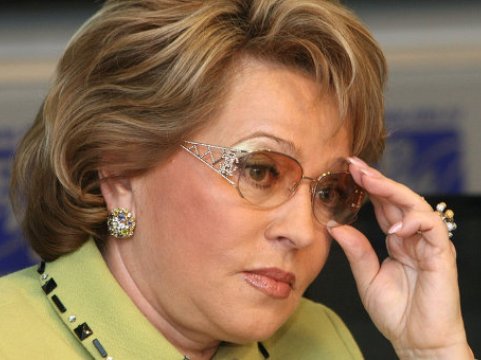Russian upper house denies speaker`s alleged remarks

The Armenia-Azerbaijan conflict over Nagorno Karabakh could be resolved only through peace talks, and the negotiating parties must be guided by international law and UN Security Council resolutions, the upper house of Russia`s parliament said last week.
The Federation Council`s statement came after Armenian media circulated reports referring to speaker Valentina Matviyenko`s alleged controversial remarks on the long-standing dispute made during her official visit to Yerevan.
The reports said that Matviyenko, during a dinner reception in the Armenian capital last Wednesday, allegedly said that everyone in the world is well aware that Azerbaijan will never regain Karabakh -- an Armenia-occupied region where ethnic Armenians are running a self-proclaimed republic -- but there are no politicians in Baku who can admit this.
``Resolution of the conflict must take into account the interests of Armenia and Azerbaijan,`` the Federation Council`s statement said. ``It must be based on the observance of well-known principles - non-use of force, respect for territorial integrity, equality and respect for people`s right to self-determination. Therefore, we believe it is important for the parties to consistently bring their positions together, while overcoming the accumulated lack of trust.``
The OSCE Minsk Group`s active mediation efforts, as well as the trilateral format of talks between the leaders of Azerbaijan, Armenia and Russia, are aimed to promote these efforts, the statement said.
``One should understand that although the mediation efforts are an important element in the advancement toward a settlement, they are merely means for establishing dialogue,`` the Council said. It added that the responsibility for concluding a peace agreement rests with Armenia and Azerbaijan, which was highlighted in a joint statement of the Russian, French and US leaders, adopted at the G-20 summit in June this year in Los Cabos, Mexico.
The Karabakh conflict emerged in 1988 when Armenia leveled territorial claims against Azerbaijan. The two countries fought a lengthy war that displaced about one million Azerbaijanis. Since the fragile ceasefire accord signed in 1994, Armenian armed forces have occupied over 20 percent of Azerbaijan`s internationally recognized territory, in defiance of international law. Peace talks, brokered by the United States, Russia and France through the OSCE Minsk Group, have been largely fruitless so far.
Here we are to serve you with news right now. It does not cost much, but worth your attention.
Choose to support open, independent, quality journalism and subscribe on a monthly basis.
By subscribing to our online newspaper, you can have full digital access to all news, analysis, and much more.
You can also follow AzerNEWS on Twitter @AzerNewsAz or Facebook @AzerNewsNewspaper
Thank you!
